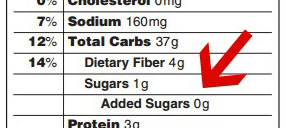
<a href="http://www.shutterstock.com/pic-178817918/stock-photo-different-sweets-isolated-on-white.html?src=wzJQVXogoTkNPv-v2T8auw-1-0" target="_blank">Africa Studio</a>/Shutterstock
Here’s something that won’t come as a surprise to anyone who has ever devoured a pint of Rocky Road after a miserable day at work: Researchers at the University of California-Davis recently found that 80 percent of people report eating more sweets when they are stressed. Their new study, published in the the Journal of Clinical Endocrinology & Metabolism, offers a possible explanation.
Sugar, the researchers found, can diminish physiological responses normally produced in the brain and body during stressful situations. With stress levels on the rise, this could explain why more people are reaching for sweets.
The three-phase study involved 19 women, ages 18 to 40, who spent three days on a low-sugar diet at the research facility. Saliva samples and MRIs were taken and stress was induced through timed math tests. After being discharged, over the course of 12 days, the women consumed sweetened drinks three times a day. Half had beverages sweetened with the artificial sweetener aspartame, while the rest had drinks sweetened with real sucrose. This phase was followed by an additional three-day stint at the facility during which MRIs and saliva samples were taken again.
After the 12-day period, the group that had sucrose-sweetened beverages showed higher activity in the left hippocampus (an area of the brain responsible for learning and memory that is sensitive to chronic stress) and significantly reduced levels of cortisol (the hormone released in response to stress) compared to those who had artificially sweetened beverages.
While this study was one of the first to show that sugar can reduce stress responses in humans, it followed up on previous studies that found similar conclusions in animal subjects. The researchers noted the need for future research—especially on whether long-term sugar consumption has the same effect.
“The concern is psychological or emotional stress could trigger the habitual overconsumption of sugar,” lead author Kevin D. Laugero told Science Daily. Not exactly great news for those of us who enjoy eating our feelings.











